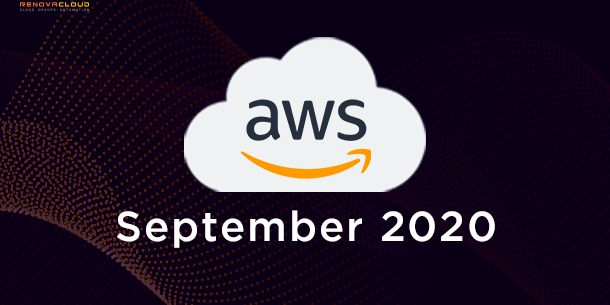
AWS News & Releases in September 2020
Table of Contents
-
New Magic Quadrant for Cloud Infrastructure and Platform Services (CIPS)
This month, Gartner announced a new Magic Quadrant for Cloud Infrastructure and Platform Services (CIPS). This is an evolution of their Magic Quadrant for Cloud Infrastructure as a Service (IaaS) for which AWS has been named as a Leader for nine consecutive years.
Customers are using the cloud in broad ways, beyond foundational compute, networking, and storage services. We believe, for this reason, Gartner is expanding the scope to include additional platform as a service (PaaS) capabilities and is extending coverage for areas such as managed database services, serverless computing, and developer tools. For the 10th year in a row, Gartner has named AWS as a Cloud Leader in their Infrastructure & Platform Services Magic Quadrant.
In addition, this month’s AWS key announcements include Amazon Redshift support for 100K tables in a single cluster, AWS SSO with new API and AWS CloudFormation support, usability improvements for the AWS Management Console, Amazon CloudWatch monitoring of Prometheus metrics from Container environments, and AWS X-Ray anomaly detection-based actionable insights in preview:
2. Usability Improvements for AWS Management Console now available
To learn more about the improvements, check out the AWS information page. Check out also the AWS Management Console to experience usability improvements.
3. AWS CloudFormation support to automate multi-account access management and AWS Single Sign-On adds account assignment APIs
Learn more about this update on this AWS blog post.
4. Amazon CloudWatch able to monitor Prometheus metrics from Container environments
Check out the AWS information page for more details.
5. Amazon Redshift now able to supports 100,000 tables in a single cluster
For more information, check out the AWS post.
6. AWS X-Ray launches anomaly detection-based actionable insights in preview
To learn more about the feature, its use cases, and how you can start utilizing it, check out the AWS blog post.



